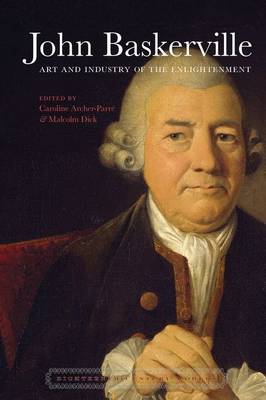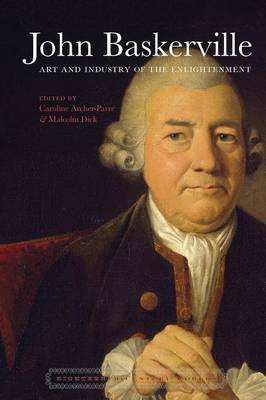
Je cadeautjes zeker op tijd in huis hebben voor de feestdagen? Kom langs in onze winkels en vind het perfecte geschenk!
- Afhalen na 1 uur in een winkel met voorraad
- Gratis thuislevering in België vanaf € 30
- Ruim aanbod met 7 miljoen producten
Je cadeautjes zeker op tijd in huis hebben voor de feestdagen? Kom langs in onze winkels en vind het perfecte geschenk!
- Afhalen na 1 uur in een winkel met voorraad
- Gratis thuislevering in België vanaf € 30
- Ruim aanbod met 7 miljoen producten
Zoeken
€ 125,95
+ 251 punten
Omschrijving
The eighteenth-century typographer, printer, industrialist and Enlightenment figure, John Baskerville (1707-75) was an inventor, entrepreneur and artist with a worldwide reputation who made eighteenth-century Birmingham a city without typographic equal, by changing the course of type design. This publication explores Baskerville in his social and economic context and evaluates his impact.
Specificaties
Betrokkenen
- Uitgeverij:
Inhoud
- Aantal bladzijden:
- 288
- Reeks:
Eigenschappen
- Productcode (EAN):
- 9781786940643
- Verschijningsdatum:
- 5/10/2017
- Uitvoering:
- Hardcover
- Afmetingen:
- 241 mm x 165 mm
- Gewicht:
- 570 g

Alleen bij Standaard Boekhandel
+ 251 punten op je klantenkaart van Standaard Boekhandel
Beoordelingen
We publiceren alleen reviews die voldoen aan de voorwaarden voor reviews. Bekijk onze voorwaarden voor reviews.








